- Home
- Michael Dobbs
Whispers of Betrayal Page 5
Whispers of Betrayal Read online
Page 5
From another drawer within his desk he takes a few sheets of personal notepaper, sits before his word processor, gives thanks to IBM and the Almighty for voice recognition and spell-check software, and dictates three more. These are letters of invitation.
The printer gives out its strange pattern of binary bleeps and, like messages from an alien world, the letters tumble forth. He signs, stamps and with great care seals the final envelope, then runs the tip of his tongue around his lips. They feel coarse from the glue, his mouth is dry. Needs a drink. He picks up the tumbler and holds it to the light. Liquid peat. Rich. Soothing.
Oh, and as steady as sunlight!
For the first time since his discharge from the Army, his hands are still. The trembling has disappeared. As the last mouthful of whisky trickles down his throat in long farewell, he rejoices.
The music beats out. Resurrection is at hand!
THREE
‘George, this is all you ever do. I watch you, your lips move as though you’re talking to me, I listen, I even concentrate, but all I hear is gobbledegook. Incomprehensible nonsense about PPPs and PSBRs and OEICs and PESC rounds. Like you’re still on some acid trip at Oxford. Can’t you come down to earth for once? Say what you mean?’
George Vertue, the Chancellor of the Exchequer, a man noted for his East Anglian reticence and who at university had experimented with nothing more lethal than an occasional mutton biryani, winced and sought time by smoothing out some invisible flaw in the nap of the brown baize tablecloth. ‘I’m trying, Prime Minister,’ he replied. ‘Believe me, I’m trying.’
The two sat alone in the Cabinet Room on opposite sides of the table, the leader young, with foundation still upon his cheeks and hair a suspicious shade of chestnut, the second-in-command neither young nor old, simply beyond time, with a sad, almost molten expression reminiscent of a walrus that had spent too long at Whipsnade.
‘Seriously, George, we need something that’s going to sell in Salford.’ The Prime Minister had just returned from a tour of the north-west and was, as ever, keen to reveal his roots on the factory floor, even though in practice they amounted to little more than a student vac spent sweeping the floors of a metal-bashing operation outside Basingstoke. ‘Up there,’ he continued, eyes raised as though Salford were part of the spirit world, ‘they think a PESC round is a day out ratting with terriers. Language, man. Language. Remember the focus groups.’
‘What I’m attempting to communicate’ – the Walrus counterattacked in an attempt to stifle the Prime Minister’s march through the provinces – ‘is that unless we do something quickly, all they’ll be selling in Salford, or anywhere else, come to that, is their wives and daughters. We’ve got to find another five billion or else.’
‘Or else what?’
‘Or else our masters in Brussels won’t allow us a permit to run a car boot sale.’
Jonathan Bendall studied his Chancellor, a former don, of media studies, bottle-bottom glasses and eyebrows like seaweed washed up on a shore. Depending on one’s point of view Vertue was either a notoriously dour man or a cold-blooded bastard. Perhaps in the end it didn’t really matter which. A Chancellor’s personality always played second fiddle to his navigational skills, and right now the economy was stuck fast on a sandbank and facing an approaching riptide. Whispers of impending crisis had even penetrated behind the closed doors that led off the Treasury’s endless oval corridor, and they were always the last to know.
Bendall took a classical view of such situations. If the gods were angry, they needed placating. A sacrifice, some head upon the plate. He had a reputation for being a willing carver and had already put two Chancellors to the sword since the last election, but it had been a cut too far and now the dining rooms of Westminster echoed to the cries of angry ghosts auditioning for the role of Banquo. No, laying down the life of yet another Chancellor was no longer an option; they were in this together, up to their necks. He would have to continue to wade with the Walrus, no matter how dire it got.
‘What about the Contingency Fund, George?’
‘What Contingency Fund?’ The seaweed wriggled on Vertue’s brow. It was as close to a display of emotion as he ever came. ‘The last of that was swept away during the autumn floods.’
‘Nothing left?’
‘Not even a tidemark.’
The Prime Minister sighed and felt the sand shifting beneath his feet. ‘OK, George, so that’s the bad news. What’s the good news?’
The seaweed wriggled once more, but then subsided.
‘Come on, George, humour me? Or do I book an appointment at the Palace this evening?’
They both knew this game. The Chancellor was a man of little traditional charm but meticulous planning, which made him an excellent player in the guerrilla warfare of Whitehall. He had a reputation for never opening negotiations without at least one hand grenade to toss across the table. The Walrus always went armed.
‘My suggestion, for what it’s worth …’ – the Walrus examined his leader with an expression he usually reserved for a plate of bad oysters – ‘is that we lay to rest the Youth Unemployment Programme.’
It was as if he had suggested legalizing incest.
‘Scrap the Yuppie initiative? But that was a core election commitment.’
The Walrus flapped his fins distractedly, as if he were irritated by flies. ‘We could always close a few hospitals, or even cut the old age pension. If you’d prefer.’
‘You’re kidding,’ Bendall responded breathlessly, struggling to keep up. The approaching sea seemed to have become boiling hot. The Walrus smiled. It was not a natural act.
‘Cut Yuppies?’ Bendall continued. He drew in a deep breath. ‘We’d lose the Employment Secretary.’
‘A tragic loss.’
‘But wait a bit.’ Bendall was lengthening his stride. ‘He’s muttering about wanting to go at the next reshuffle anyway. So why not get in there first, bring the changes forward? Better to push him, don’t you think, rather than let him jump?’ Already Bendall’s keen presentational nose was to the fore. It was said he could sell snow to Eskimos but his speciality was selling indulgences to the middle classes, a task he had performed with remarkable success in every region from Hampshire to the Highlands. Up to now.
‘We’d need some justification,’ he continued. ‘Apart from the bloody obvious.’
The Walrus blew his nose on a large red handkerchief, shaking himself as he collected his thoughts. ‘Well, I suppose we start by rounding up the usual suspects. You know, the competition from Eastern Europe. The financial crisis in Latin America. Short-sighted bankers. That sort of thing.’
‘Perhaps we could get Brussels to bail us out.’ Bendall threw the suggestion into the air to see how it might fly. ‘Could we get the Commission to rule the Yuppie programme invalid? You know, not only save the money but also get a good stand-up row with the French.’
‘It might be arranged.’ The Walrus nodded in appreciation. ‘But we’d still be stuck with a substantial increase in the unemployment figures.’
The Prime Minister brightened, as though television lights had been switched on. ‘No, not necessarily. You see, I’ve long been of the opinion that the unemployment figures are …’ – he paused, like a conductor with baton raised to attract the attention of the orchestra – ‘that the unemployment figures are exceptionally crude. One enormous rubbish pit into which everything is dumped. Young people who’ve never had a proper job. The middle-aged who may never get another job. The unqualified, the infirm, the idle and apathetic.’ He loved toying with phrases. Many of his policies had been built on little more than the appeal of alliteration. Phrases were so flexible. If one didn’t work out, you changed it, found another. Didn’t do much for continuity but made for great sound bites. ‘You know, I feel an overwhelming sense of public responsibility to make sure the unemployment figures are cleaned up. And broken down. Into their constituent parts. They need to be rationalized. Redefined. Redistributed. Add a few
categories here, maybe take a few categories there.’
‘Create so much smoke that no one will be able to see through it clearly enough to know what the hell is really happening.’
‘Precisely. Just as we did three years ago.’
Their deliberations were disrupted by a knock upon the door. It swung open slowly and from behind it appeared the timid-eager face of Anita Chaudury, the Member for one of the Leicester seats and the Prime Minister’s Parliamentary Private Secretary. The ‘Parly Charlie’ was little more than an unpaid parliamentary gofer, a runner of errands, tasks which at times were of such menial standing that in any other profession they might have led to a lawsuit, but she loved every minute of it, from making sure there was enough Frascati in the fridge to keeping her master’s compact available but unobserved. It mattered not a jot to her that she had been chosen for the role solely to prop up the Prime Minister’s credentials on sexism and racism, his ‘double whammie mammie’, as he had been know to refer to her. For Anita it was the first rung on the ladder, the pathway to higher things.
‘Excuse me, Jonathan …’ She looked flustered but couldn’t hide the reverence in her voice. ‘I thought you ought to know straight away. It’s Sampson.’
‘Who?’
She took a couple of tentative steps into the room. ‘Sampson. One of our Members in Leeds.’
Bendall knotted his brow, trying to locate him. ‘So what’s young Sampson gone and done?’
She coughed. ‘Old Sampson,’ she began, anxious about the necessary correction. ‘I’m afraid he’s gone and died.’ She made it sound as if it were her fault.
The furrows on the Prime Minister’s brow deepened. ‘I am inconsolable, Anita. What’s his majority?’
‘Over ten thousand.’
‘A fine man. And a fine legacy. Arrange the usual letters of condolence.’ Bendall was on the point of returning to his business with Vertue when he became aware that she was already clutching a sheaf of letters. ‘Ah, you have them already. Well done. I’ll sign them immediately.’
She retreated half a pace. ‘No, no, Jonathan, these are … from the public. In response to Gerry Earwick’s letter in the Telegraph about defence cuts. Didn’t go down too well with some of the Old Contemptibles, I’m afraid.’
Bendall sat back in his chair, contemplating his assistant. ‘Tell me, Anita, what did you think of the letter?’
Her brown eyes grew large, she thought she had entered heaven. She was in the Cabinet room. Her opinion being sought. On her way. ‘To be frank, I thought it brutal.’
‘Absolutely right. Man’s a bloody Tojo.’
‘It would have been better, in my opinion,’ she continued, emboldened by his support, ‘to have found some common ground. Conciliated. Extended the hand of understanding.’
Oh, and that’s where you are absolutely wrong, Bendall concluded silently. Politics is not a game of apologies. It’s war, bloody, at times bestial. No prisoners. If Earwick’s remarks had been a trifle intemperate, they had at least revealed all the brutal instincts required to ward off sharks. A necessary man. Which is why, at the forthcoming reshuffle, he will be getting a promotion. While you, little Anita, will be cast adrift alongside the Employment Secretary. With a big label marked No Longer Needed On Voyage.
‘Tell me, Anita, can you swim?’
‘N-no,’ she stumbled in surprise.
‘Thought not.’ He dismissed her with a wave of his hand.
‘The full tide of existence is here,’ Dr Samuel Johnson had once remarked about the crossroads that are now Trafalgar Square, and Goodfellowe was inclined to agree with him, although for the moment the tide seemed to have ground to a halt.
Goodfellowe had retreated in late afternoon to his flat in Chinatown in order to escape the inevitable demands of the Tea Room. He had both a diet to defend and a backlog of personal correspondence to clear and was behind schedule on both, but now he was scurrying back to Westminster, braving the evening rush hour to make the seven o’clock vote. Except nothing was rushing. As he manoeuvred his bicycle around the queue of cars waiting their turn to enter the square he found his path obstructed, the intersection jammed. From his eyrie, the figure of Nelson presided over a maelstrom of anger and abuse.
The square had been hijacked.
Goodfellowe struggled on for a few precious yards, only to find himself in the middle of a demonstration that had been planned with the precision of a Prussian cavalry assault. Several hundred eco-warriors mounted on bicycles had charged upon the enemy’s divisions, taking them by surprise at a time when their manoeuvrability had already been reduced to a rush-hour crawl. Within minutes the bicycles were masters of the field. Their numbers were so great and their presence so dangerously disruptive that the flow of traffic had been forced to slow, then stop completely, the way barred by impenetrable picket lines of bikes. Dozens of policemen were falling upon the square but as soon as one cycle was moved on, another took its place. So what were they supposed to do? Arrest several hundred bikes?
A young cyclist drew alongside Goodfellowe. ‘Shove it up their exhausts!’ his fellow biker greeted him, clapping him painfully on the shoulder.
Goodfellowe was inclined to agree, but only up to a point. After all, the good citizens of the rural constituency of Marshwood relied on cars for everything, including delivering his majority on voting day. There were two sides to this one and such moral dilemmas were best considered at leisure, not while rushing to make the Division Bell. He dismounted and attempted to press on through a warcry of car horns, whistles and increasingly angry noises of complaint.
In front of him a uniformed inspector was shouting into his personal radio, demanding that reinforcements be winkled out of the police canteen at Charing Cross, while nearby a Sky TV news crew had arrived just in time to witness a cyclist moaning in the gutter after being knocked from her bike by a confused motorist. Around the base of the column a group of protesters were unfurling a banner half the length of a football pitch: ‘Save Our Streets!’
Bedlam.
It took Goodfellowe several minutes to force his way to the south side of the square. He was now directly beneath the superb equestrian statue of King Charles, one of the few to have survived the Civil War. The hapless monarch gazed down Whitehall towards the site of his scaffold, around which the crowd had watched in silent disbelief as the head had been struck off at the fourth cervical vertebra with a single clean blow. Goodfellowe glanced at his watch – he was late, very late, if he missed the vote he doubted that the Whips would be as merciful – but with a final heave of his handlebars he found that salvation was at hand. The police, reinforced and now regrouping, were throwing barriers across the top of Whitehall to prevent the demonstrators descending on Downing Street itself. Beyond the cordon lay the Houses of Parliament, the way to which was entirely clear.
‘And where d’you think you’re going, Sunny Jim?’
‘Let me through, please, Constable. I’m a Member of Parliament and I’ve got a vote to catch.’ Anxiety and lack of time made him sound pompous.
It riled the policeman. The constable inspected the figure clad in luminous yellow helmet and baggy trousers that had appeared before him, then stood his ground. ‘Piss off before I nick you for obstruction.’
‘Don’t be offensive.’
‘Piss off – sir. Will that do you?’
‘Look, I’ve got a vote in the House of Commons in less than ten minutes. Let me pass. I insist!’ Goodfellowe reached out and shook the metal barrier that stood between them.
‘Don’t get violent or I’ll …’
‘Violence? Is that what you want? Because that’s what you’ll get when I report this to Chief Superintendent Ainsworth.’
The mention of his superior’s name gave the constable pause both for thought and for a little anxiety. ‘You really an MP?’ he demanded, sucking a broken front tooth. ‘Where’s your ID then?’
‘My ID?’ Goodfellowe began slapping his pockets in frustration. �
��I’m not carrying it. I rarely carry it.’
‘No ID, only cycle clips? Then they’re not going to let you into the House of Commons, are they?’
‘They all know me there, for God’s sake. Let me through!’
By this time a number of other cyclists, genuine demonstrators, had drawn up to witness the confrontation and to heckle Goodfellowe on, demanding not only that he be let through but that they all be let through. Goodfellowe groaned.
‘Look, Constable … 169OW. You prevent me from getting through and you’ll be in breach of the Sessional Order of the House of Commons. Can’t remember the exact quote, but something about the police ensuring that no obstruction be allowed to hinder the passage of Members to the House on pain of being inflicted with all sorts of cruel and unusual punishments. You’ll not only be on the Chief Super’s doorstep first thing tomorrow but also find your way into the pages of Hansard. Ainsworth’ll boil your balls for his breakfast. The rest of you’ll go for mince. You’ve got …’ – Goodfellowe glanced despairingly at his watch; he wasn’t going to make it – ‘about ten seconds to make up your mind or end up on the back shelf of your old mum’s fridge.’
The constable hesitated. If he let one through the others might follow and he’d have caused a cavalry charge down Whitehall. On the other hand, whoever this man was, he clearly knew Ainsworth and his appetites. God, if only he’d joined the gendarmerie he could have beaten the crap out of them all and no questions asked. The constable tossed the consequences back and forth, weighing his doubts against the merits of his manhood, until eventually he relented. ‘The rest of you get back,’ he shouted at the demonstrators, ‘just this one’s getting through.’
It took more agonizing moments of delay before they complied, the barrier was dragged back, with a muttered apology from the policeman for any misunderstanding, and Goodfellowe was allowed to pass.
As he remounted his bike and began pedalling furiously, he could hear Big Ben striking in the distance, tolling for the bodies to be brought in for counting. Already he was sweating and he’d feel like a dish rag when he arrived. He had only a few more minutes before the doors of the voting lobbies would be locked. He took a huge breath to fill his lungs with oxygen. His legs ached with the effort and suddenly he felt very middle-aged. Time was running out for Goodfellowe, in all sorts of ways. There was still so much he wanted to do, to achieve, but he knew he could do none of it left out in the cold on a bicycle. There was also the matter of Elizabeth. How was he going to hang on to someone as classy as that if all he could offer her was the back of a bloody tandem? As he raced past the Red Lion, he knew that the time had come for him to move on in his life. The bicycle clips had to go.

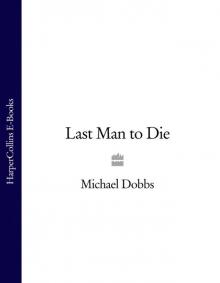 Last Man to Die
Last Man to Die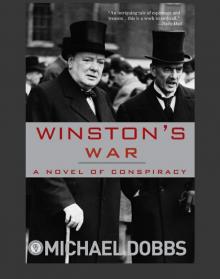 Winston's War
Winston's War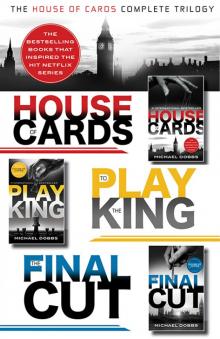 The House of Cards Complete Trilogy
The House of Cards Complete Trilogy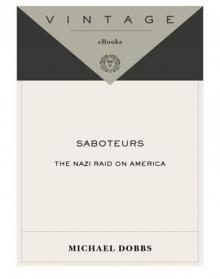 Saboteurs
Saboteurs The Touch of Innocents
The Touch of Innocents WC02 - Never Surrender
WC02 - Never Surrender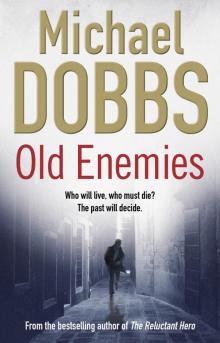 Old Enemies
Old Enemies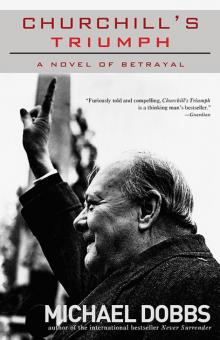 Churchill's Triumph
Churchill's Triumph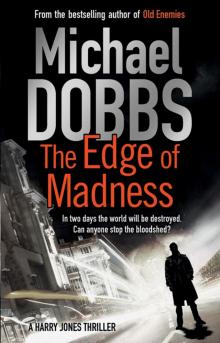 The Edge of Madness
The Edge of Madness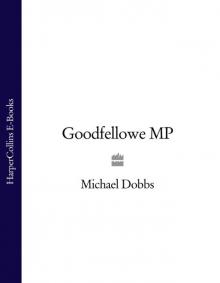 Goodfellowe MP
Goodfellowe MP The Final Cut
The Final Cut Whispers of Betrayal
Whispers of Betrayal Churchill's Hour
Churchill's Hour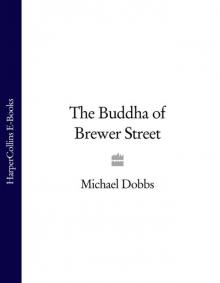 The Buddha of Brewer Street
The Buddha of Brewer Street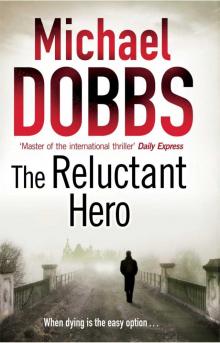 The Reluctant Hero
The Reluctant Hero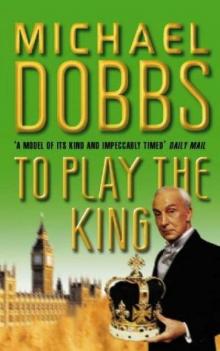 To Play the King
To Play the King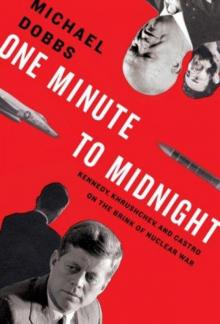 One minute to midnight
One minute to midnight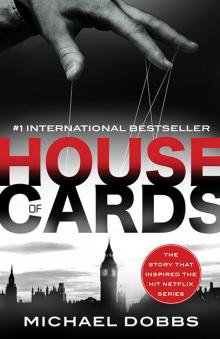 House of Cards
House of Cards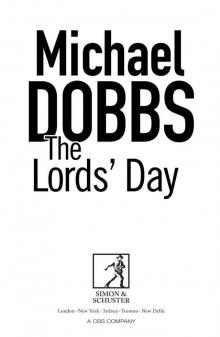 The Lords' Day (retail)
The Lords' Day (retail)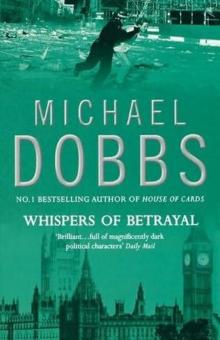 Whispers of betrayal tg-3
Whispers of betrayal tg-3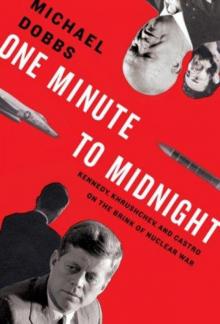 One minute to midnight: Kennedy, Khrushchev, and Castro on the brink of nuclear war
One minute to midnight: Kennedy, Khrushchev, and Castro on the brink of nuclear war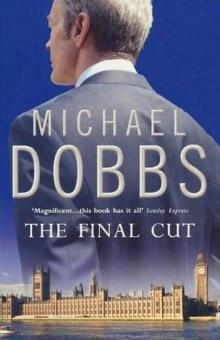 The Final Cut fu-3
The Final Cut fu-3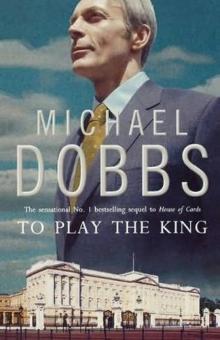 To play the king fu-2
To play the king fu-2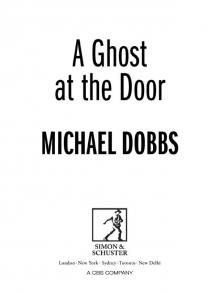 A Ghost at the Door
A Ghost at the Door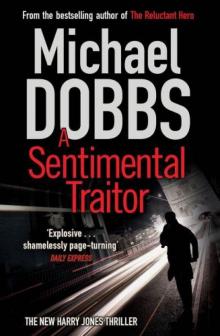 A Sentimental Traitor
A Sentimental Traitor